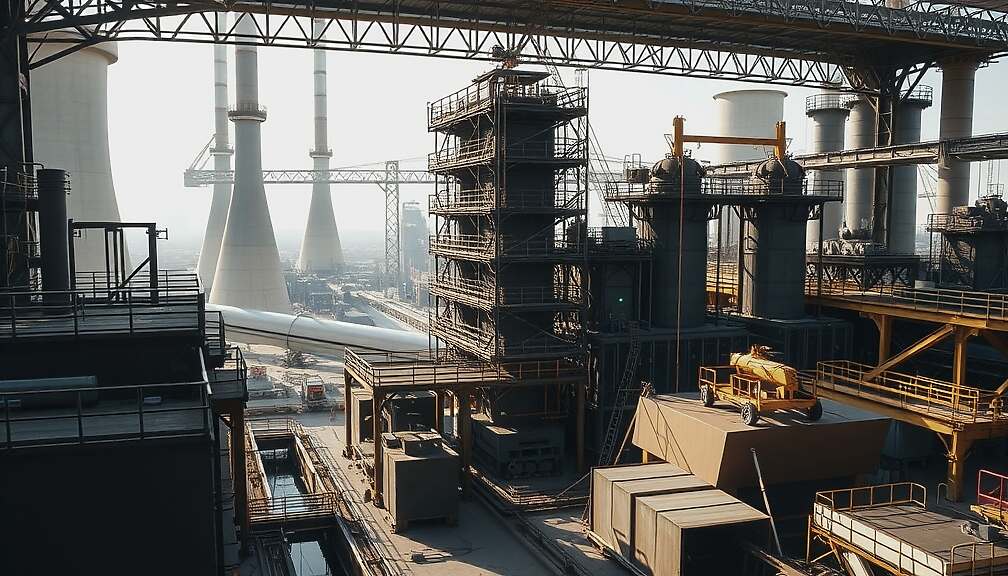Industrial energy consumption in Germany rebounded in 2024, signaling a complex interplay of economic recovery and lingering structural vulnerabilities within the nation’s industrial base. According to data released by the Federal Statistical Office (Destatis), total energy usage across the industrial sector reached 3.343 Petajoules, representing a 1.9% increase compared to the previous year. This rise, while seemingly modest, follows a period of significant decline in 2022 and 2023, largely attributed to soaring energy prices and subsequent production curtailments within energy-intensive industries.
While natural gas (29.2%), electricity (21.1%), mineral oils (16.5%) and coal (14.5%) remain the dominant energy sources, a particularly concerning trend has emerged: a substantial 13.3% surge in energy consumption utilized as raw materials in the production of chemicals, fertilizers and plastics. This represents approximately 10.5% of total industrial energy usage, but its disproportionate increase suggests a return to pre-crisis production levels and potentially exacerbates reliance on fossil fuels.
The data further highlights the renewed dominance of energy-intensive industries, which account for 81.9% of overall industrial energy consumption in 2024, a figure up from 80.8% in 2023. These sectors, which experienced substantial declines in previous years, saw a 3.2% increase in energy usage, driven primarily by the chemical industry (+7.1%) and mineral oil processing (+5.4%). The chemical industry remains the single largest consumer of energy within the industrial sector, responsible for 27.9% of total consumption.
However, it’s crucial to note that a significant portion (34.1%) of the energy consumed by the chemical industry is utilized as raw materials rather than for generating electricity or heat. While this reduces the direct thermal impact, it underscores the dependence of this vital sector on energy-intensive processes, many of which rely on fossil-based feedstocks. This dependency raises critical questions about Germany’s commitment to its climate targets and its ability to transition to a more sustainable industrial model.
The rebound in energy consumption amongst energy-intensive sectors, coupled with the increased utilization of energy as raw materials, casts a shadow on the effectiveness of government efforts to incentivize energy efficiency and promote renewable energy adoption within German industry. Policymakers now face the challenge of not only ensuring energy security but also accelerating the decarbonization of the industrial sector, requiring significant investment in innovative technologies and a fundamental shift in production processes. The reliance of key industries on fossil fuels needs urgent, strategic reassessment.












